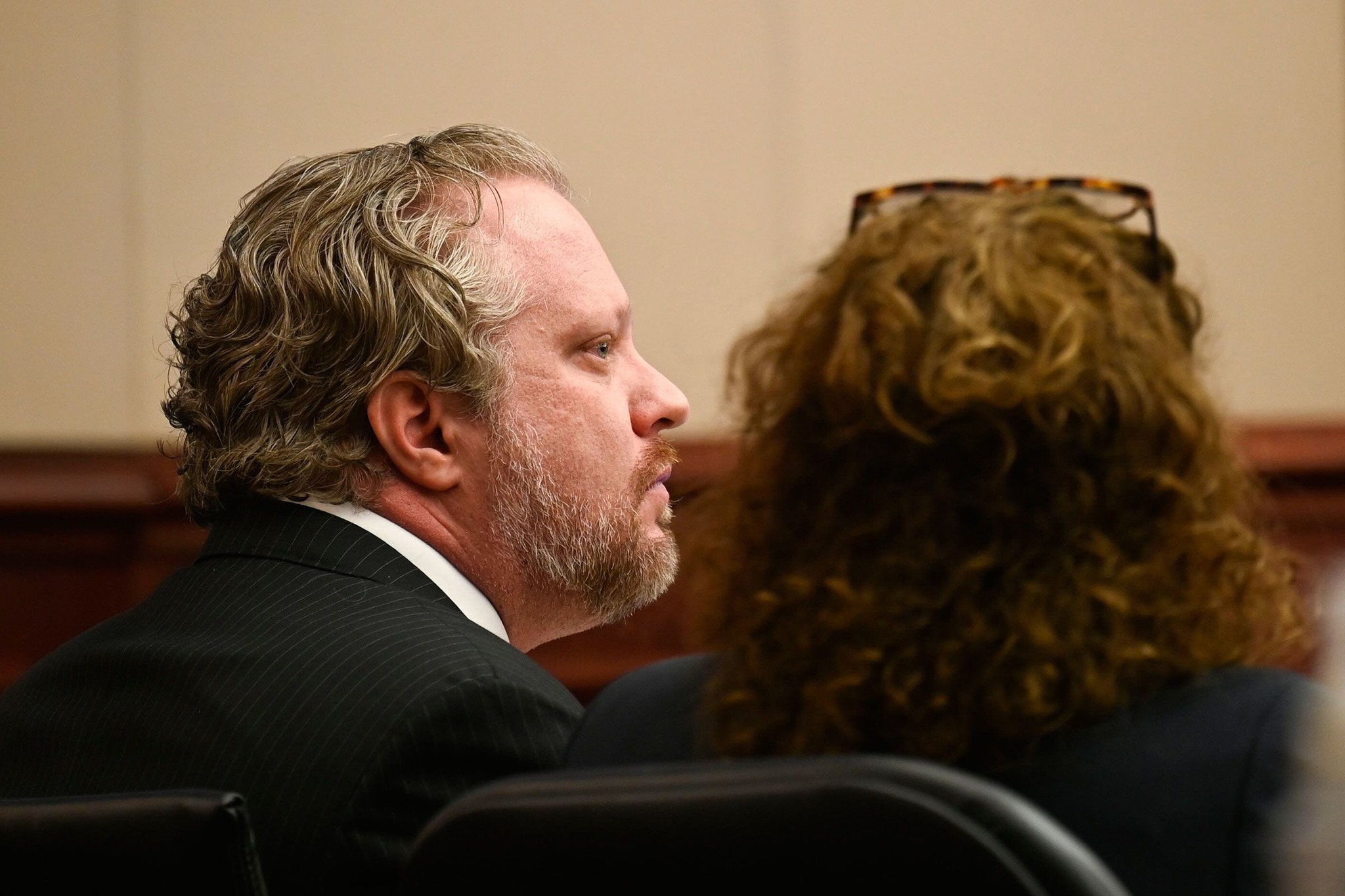AURORA, CO — A Colorado courtroom now lies silent as the jury begins deliberating the fate of James Craig, a once-respected dentist accused of orchestrating the slow and deliberate poisoning of his wife, Angela Craig, in what prosecutors allege was a cold-blooded murder disguised as a suicide.
Closing arguments concluded Tuesday, bringing to a close several weeks of emotionally charged and deeply disturbing testimony. The jury now faces the daunting task of deciding whether James Craig is guilty of first-degree murder or a lesser charge, or whether he should walk free altogether.
Craig, 46, is accused of killing Angela Craig on March 15, 2023, by giving her a lethal dose of cyanide. Prosecutors argue he meticulously planned his wife’s death, masking her decline as a mysterious illness while she sought medical help. Angela was ultimately declared brain dead, and investigators soon uncovered what they allege was a deeply premeditated act, rooted in infidelity and deception.
During the trial, damning evidence was presented, including text messages, internet searches, and surveillance images that prosecutors said show Craig holding a syringe just before entering Angela’s hospital room—moments before her condition worsened dramatically.
The prosecution asserted that Craig’s motive was clear: he wanted to be with his mistress, a fellow dentist, and rid himself of a marriage he no longer desired. But rather than pursue a divorce, they claim he turned to poison. According to investigators, he researched methods of undetectable poisoning, ordered potassium cyanide online, and administered it to Angela through antibiotic capsules and a prepared syringe.
In one of the most shocking allegations, prosecutors revealed Craig later tried to cover his tracks by crafting a narrative that Angela wanted to end her life. Notes recovered from Craig’s phone showed he claimed Angela had asked him for poison to assist in a suicide after learning of his affair and his desire for divorce. However, prosecutor Michael Mauro strongly disputed that claim during closing arguments, pointing to Angela’s ongoing plans for the future and lack of any signs she was suicidal.
“He wanted out,” Mauro told the jury. “But instead of telling his wife the truth and walking away, he decided to slowly poison the mother of his six children.”
Adding another disturbing layer to the case, Craig is also accused of attempting to tamper with evidence and soliciting another inmate to kill the lead detective on his case while in jail—allegations that the defense argued were unproven and sensationalized.
Defense attorney Lisa Fine Moses acknowledged Craig’s extramarital affairs and dishonesty, but argued that the state failed to prove he intentionally murdered Angela. “So you know what, good job,” she told the jury with heavy sarcasm. “You proved beyond a reasonable doubt that this guy is a cheater.” She insisted the evidence left room for reasonable doubt, especially regarding whether Craig actually administered the poison or if Angela took it herself, possibly influenced by emotional distress.
The jury now has multiple options. They can:
- Find Craig guilty of first-degree murder, if they believe he intentionally killed Angela with malice and premeditation.
- Find him guilty of manslaughter, if they believe he aided Angela in ending her own life.
- Or acquit him entirely, if they believe the state failed to prove either theory beyond a reasonable doubt.
Jurors began deliberations around 1:00 p.m. local time on Tuesday, and court observers expect the process may take several days due to the complex and emotionally charged nature of the case.
The death of Angela Craig, remembered as a dedicated mother of six and a beloved community member, has captivated national attention—not only for the chilling allegations but also for the betrayal and heartbreak that have unraveled in the courtroom.
As the trial nears its conclusion, the Craig children and extended family now await a verdict that could either deliver justice for Angela—or raise even more questions about love, trust, and the darkest corners of human behavior.

Leave a Reply